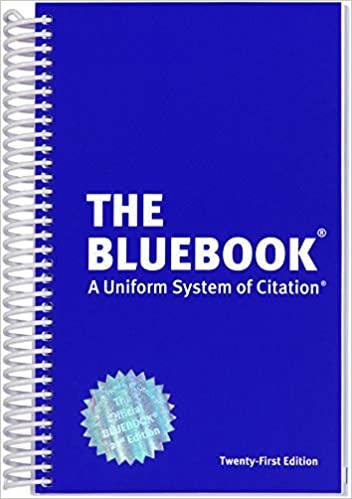Question
QUESTION 31 Generally, a minor must place the adult in status quo in order to disaffirm a contract. True False QUESTION 32 Contracts that have
QUESTION 31
Generally, a minor must place the adult in status quo in order to disaffirm a contract.
- True
- False
QUESTION 32
Contracts that have an illegal object are voidable.
- True
- False
QUESTION 33
A statement of opinion may form the basis for fraud.
- True
- False
QUESTION 34
Which of the following statements is true?
- Restitution is placing the other party back in the position it was in prior to the contract.
- Restoration is what a minor is entitled to receive upon disaffirming a contract.
- Revocation refers to a party returning the consideration received in a contract.
- Rejection can occur only as part of a counteroffer.
QUESTION 35
Where a contract calls for action that violates a statute, in a breach of contract case the court will:
- Impose the appropriate criminal penalty.
- Ignore the contract and leave the parties where they are.
- Order both parties to return any consideration received.
- Order payment so that the parties to the illegal contract share any losses equally.
QUESTION 36
The primary significance of requiring only the signature of the party "against whom enforcement is sought" under the Statute of Frauds is that:
- The court will check to see that the signatures of both parties are present.
- The contract need not be signed by the party seeking to enforce the contract.
- Parties can be penalized for failing to sign a written contract.
- A party's signature must be present in order to introduce evidence from outside the four corners of the contract.
QUESTION 37
In a contract, a party can be both an obligor and an obligee.
- True
- False
QUESTION 38
When there is substantial performance of a contract with a minor breach, the other nonbreaching party may sue to recover the cost to repair the defect.
- True
- False
QUESTION 39
Intentional interference with contractual relations requires a showing of bad faith before liability can be imposed.
- True
- False
QUESTION 40
The transfer of rights under a contract to a third party is called:
- An assignment.
- An adjudication.
- A resolution.
- A delegation to an obligee.
QUESTION 41
An employment contract contains a clause stipulating that the employer can terminate the contract if the employer fails a drug test.This clause is an example of a:
- Covenant.
- Condition precedent.
- Condition subsequent.
- Concurrent condition.
QUESTION 42
When a client breaches a contract with a construction contractor before construction begins, what is the contractor generally able to recover?
- The amount of the contract price
- Only the out-of-pocket costs incurred by the contractor up to the time of the breach
- The amount necessary to provide the same profit to the contractor that the contractor would have earned if the contract were fully performed
- Three times the contract price as punitive damages
QUESTION 43
A sale is the passage of title from the seller to the buyer for a price.
- True
- False
QUESTION 44
In a lease transaction, title to the leased goods remains with either the lessor or a third party.
- True
- False
QUESTION 45
With letters of credit in international transactions, a bill of lading is issued by the common carrier.
- True
- False
QUESTION 46
A general purpose of the UCC is to:
- Protect the merchant who deals in goods.
- Protect the consumer.
- Standardize commercial law and facilitate commercial transactions.
- Protect parties from entering into unconscionable contracts.
QUESTION 47
Identification of goods is significant because:
- It allows the contract to be a destination contract.
- It is the earliest that risk of loss can pass.
- It determines when a document of title is needed.
- It determines when the implied warranties become effective.
QUESTION 48
In a noncarrier case for the sale of goods, which of the following is most important in determining when risk of loss passes?
- Whether the seller is a merchant
- Whether any warranties have been disclaimed
- Whether the buyer is a merchant
- When title passes
Step by Step Solution
There are 3 Steps involved in it
Step: 1

Get Instant Access to Expert-Tailored Solutions
See step-by-step solutions with expert insights and AI powered tools for academic success
Step: 2

Step: 3

Ace Your Homework with AI
Get the answers you need in no time with our AI-driven, step-by-step assistance
Get Started


